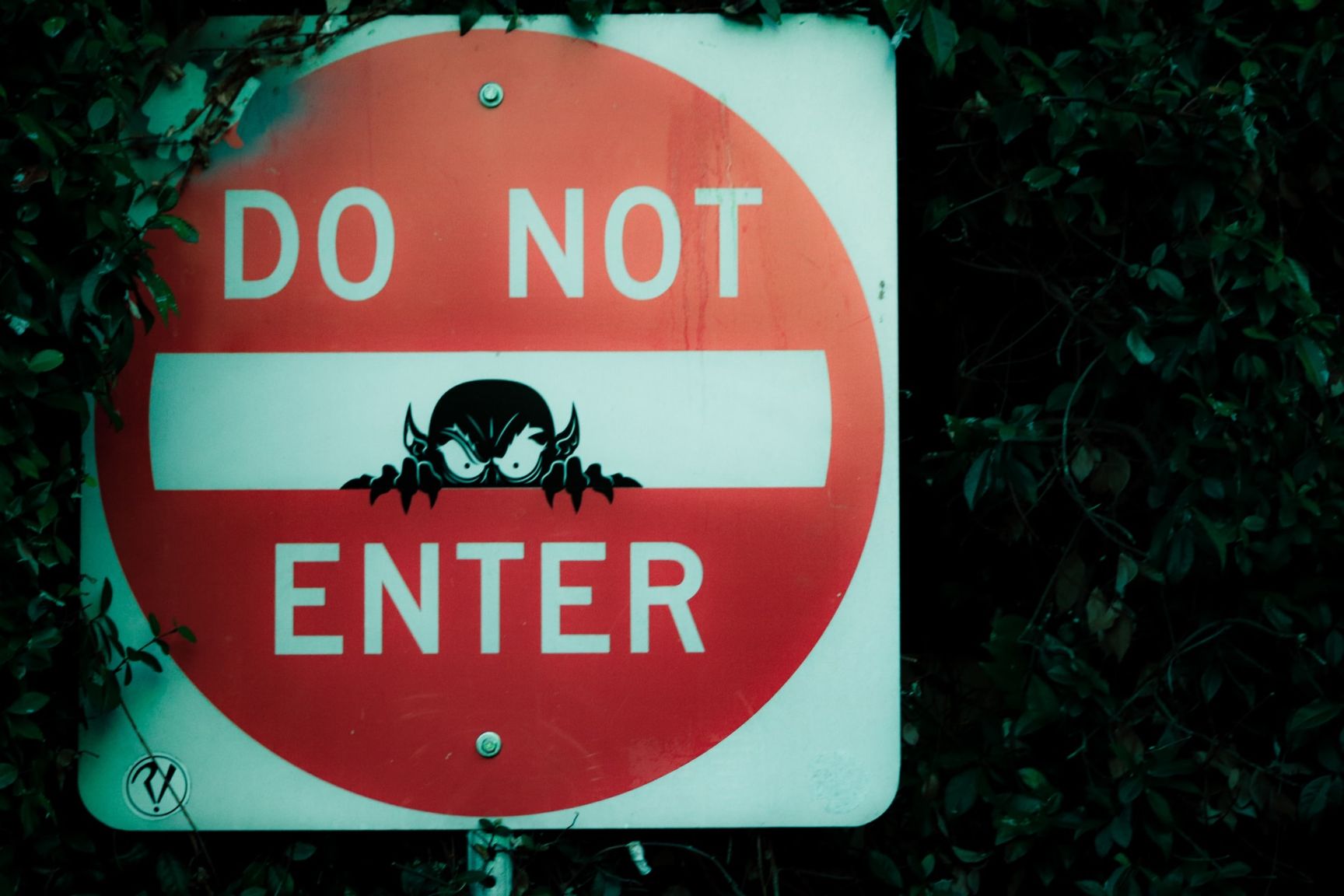Black PR, according to some, means that it doesn't matter how they talk, as long as they talk. Until a few years ago, this saying may have had a point. Today, one can certainly disagree with it. In fact, the entire public relations industry suffers from bad PR. It is black PR that makes it perceived as a corporate tool for hiding the truth. Black PR is the creation of positive messages based on bad news. There has been a hazardous substance spill at your company? One of your car parts turned out to be faulty? Someone you know caused an accident while driving under the influence of alcohol? No problem... call in the PR team. This perception of PR has made us all suffer the consequences.
What will you learn from the article?
Have you ever wondered how black PR affects a company's image? In the age of the internet and social media, information manipulation techniques have become more common than ever before. But is it worth reaching for such tools to gain a competitive advantage?
In today's post, we will talk about the dark side of public relations - black PR. We'll go through examples of its use, techniques used by manipulation specialists and how to defend against negative campaigns.
Read on to find out the consequences of using black PR and how to combat it effectively.
Posting negative messages. Preparing false statements from 'anonymous third parties'. Creating negative or misleading content on small but influential websites. Paid use of unscrupulous 'journalists'. Generating large volumes of negative posts on social media.
Saturating search results with negative content in order to lower positive results. This is what black PR is, among other things. These are just examples of a growing and risky 'new category' of industry public relations. The industry, which in its essence was born to care for a good image, acceptance and kindness towards the activities of a given person or organization. Each honest PR agency it works in this spirit.
Your company fell victim to black PR?
There is no situation without a solution. Check how we can help you.
Does black PR pay off?
What separates black PR from the one that many of us practice, there is a small, often fine line called "ethics". It's a line that, no matter how many codes of conduct we follow, is directly related to our core values, beliefs and behaviors. There is, however, another problem that is starting to take root at a deeper level. A trend that needs to be reversed. Well, unfortunately, more and more often, lying seems to be more and more natural when it is advisable. When thanks to it you can avoid embarrassing situations for the company.
Meanwhile, not only companies and leaders, but all of us should come back to the belief that lying is never right. For reasons of credibility, honesty and often even from a financial point of view, a company is ultimately better served by the truth than by a lie.
Take, for example, situations from the world of politics. The Watergate affair, the scandal involving President Clinton and Monica Lewinsky and many, many others. How much better off would leaders have been if they had insisted on honesty from the outset? Black PR has done them more harm than good. Even after the initial serious mistakes were made, situations could still have been stopped from getting out of hand. If only they had shown more honesty in facing the truth.

Internet - a paradise for black PR?
Black PR obviously follows the development of communication channels. On the Internet, there is no shortage of offers for paid posts, commentary opinions in online forums or social networks. A place where black PR even flourishes are all websites and portals related to the labor market. There used to be a saying - a satisfied customer will tell three friends about the company, and a dissatisfied customer will tell ten. In the age of the Internet, the scale of the problem has increased significantly. This is also the case with dissatisfied employees - who knows, real or only impersonating such.
One can find a multitude of posts on the web denigrating the employer. The question is how many of these are false stories. Typical black PR, and the situations described never happened. Why the effrontery? Certainly much is merit of anonymity. It is she who gives many people a feeling of impunity. It allows freedom of expression unlimited by any moral standards. The web gives virtually endless possibilities of modifying existing content. Freedom to comment on everything and everyone. And moderators or administrators are not always able to react quickly enough. Black PR is also doing well in business. How is it manifested? You can create a fake website that imitates a competitor's website, but communicates content unfavorable to its image. By creating the opinions of disappointed "customers". The range of possibilities is large, but the point is not to prompt and support black PR.
Black PR - examples
Even big brands like Nutella and Amway have fallen victim to fake news. By proving that the rumors about you are false, you prove to your customers that they can trust your services. Reacting to black PR and the misinformation it causes keeps your customers loyal.
In 2016, there was panic among Nutella consumers when it was announced in the news that it contained carcinogenic palm oil. The European Nutrition Standards Commission warned that even occasional consumption of this ingredient, could pose a health risk to children. Scientists have been unable to say what level of consumption is acceptable, due to a lack of relevant research.
To fend off accusations, Ferrero released the ingredients of its iconic chocolate and nut paste to the public. It also launched an advertising campaign to reassure consumers that the products in Nutella were safe. The manufacturer explained that without the addition of this particular oil, the cream would lose its soft and smooth texture. Ultimately, the scandal did not affect sales.

In 2007, a court verdict for Amway and a fine of $19 million brought to an end its black PR targeting of rival Procter & Gamble by spreading rumours that P&G was donating its profits to the Church of Satan. The trial, which began with a single rumour, lasted 12 years. However, its origins actually go all the way back to 1981. It was then that the first claims were made that the bearded man with the company logo was a mockery of the Revelation of St John. Interestingly, in Poland, the image of the bearded man in the Procter & Gamble logo was associated with the figure of Mr Twardowski. This man, according to the fable, made a pact with Satan. The black PR practised by Amway backfired. Neither an explanation from P&G representatives nor a change of logo helped. The whole situation has gone down in history as an example of a crisis triggered by a single rumour.
What techniques does black PR use?
Black PR is the practice of spreading negative information about a brand. It often damages its reputation and corporate identity. Black PR can discredit a company or individual. Popular discrediting techniques include:
- composing and disseminating false news
- posting negative reviews
- presenting misleading "facts".
It is very important to respond to negative publicity and try to shake it off quickly. If you don't, not only your reputation could suffer, but your sales could also suffer. The respondents provide abundant evidence that the company's reputation on the Internet has a direct impact on the company's profits:
- 90% consumers have used the internet to find a local business over the past year and 33% does so daily
- the average consumer reads 10 reviews before feeling able to trust the company - only 53% people would consider using a company that has less than 4 stars as rated by Google
- among consumers who read reviews, the 97% also reads company responses to comments.
What people say about you on the internet is important.
Black PR - how to defend yourself?
While doctors use scalpels and drugs to help patients, PR agencies skillfully use TRUTH. It is their weapon to overcome lies and unfounded information that can harm their customers. What can companies do when they fall victim to black PR? It is best to prepare in advance for such an eventuality and have a strategy in place warming the image. What is black PR afraid of? First of all - corrections and clear messages. Moreover, the right strategy makes the situation seem dire and can be turned into success. Getting into discussions with a given brand may increase interest in a given brand. However, it also carries a high risk that the effect will be counterproductive. Spouting, verbal scuffles - this is not what the recipients expect. So how do you fight to regain your good name? An effective method may be factual argumentation or documenting the falsehood of the allegations or words of the competition.

Is it worth using black PR?
Practicing black PR is not a way to build your own reputation or alleviate your PR problems. While public relations still concerns image and public perception, times have changed. There is now a much stronger expectation for companies to be more transparent and accountable for their actions.
Rather than trying to vilify the competition and portray them in a bad light or blame the crisis on external circumstances, you need to face up to the problems. While it may seem tempting to try to blame someone or something else, in fact, mudslinging and blaming often results in further negative public reactions rather than attracting more allies.
Therefore, companies need to find more creative ways to redirect negative attention than black PR. Perhaps find an opportunity to do some positive public relations to offset something negative? Usually, the simplest response is to take responsibility for the problem - in most cases, this responsibility and honesty will have a more positive effect than diverting attention.

Consumers are now looking for more authentic interactions with companies. They repeatedly show that they value this more than simply giving them company highlights. The level of consumer trust among individuals is currently low. For this reason alone, black PR is a risky activity. If it comes to light (and it often does), it can be more damaging than helpful to a company's image in the long run.
So how can public relations continue to effectively manage audience perception? The concept of getting ahead of the story still applies. It is worth monitoring posts about the company in the media, keeping track of the mood within the company to get ahead of a message that will grow into a huge news story. This is very important especially now that information spreads faster than lightning on the internet.
Are you afraid that you may also encounter an unjust attack? Or maybe you are experiencing it?
Contact us - we'll fix it together.
Frequently Asked Questions (FAQ)
What is black PR?
Black PR is a deliberate and organised effort to damage the reputation of a company or individual by publishing false, manipulated or out of context information. It is most often conducted anonymously and this makes it difficult to identify and hold perpetrators accountable.
How do you recognise a black PR attack?
A black PR attack can be identified by a sudden increase in negative content, often incoherent, replicated on different platforms and unsupported by facts. The appearance of identical or similar messages over a short period of time is also characteristic.
How do you defend yourself against black PR?
Defending against black PR includes promptly dementing false information, publishing accurate messages and actively monitoring media and social media. Depending on the situation, legal action, cooperation with public relations experts and outreach to key stakeholders may also be necessary.
Can you sue for black PR?
Yes. Black PR activities may be grounds for a civil lawsuit or notification of law enforcement authorities. If reputational damage is proven, the company can claim removal of the content, no further action and damages.

